The Fair Chance Licensing Coalition says everyone deserves meaningful employment
For Rhode Islanders who have been involved in the criminal justice system, occupational licensing restrictions pose a serious barrier to meaningful employment. Many of the entry-level jobs in some of the state’s fastest growing sectors require occupational licenses. Over 70 percent of the occupations that the Bureau of Labor Statistics classifies as “lower-income” require a license. Even some professions for
April 12, 2019, 5:06 pm
By Steve Ahlquist
For Rhode Islanders who have been involved in the criminal justice system, occupational licensing restrictions pose a serious barrier to meaningful employment. Many of the entry-level jobs in some of the state’s fastest growing sectors require occupational licenses. Over 70 percent of the occupations that the Bureau of Labor Statistics classifies as “lower-income” require a license. Even some professions for which Rhode Islanders can receive training and certification while incarcerated are closed to people returning home because of how licensing agencies explicitly use criminal records to exclude otherwise qualified candidates.
The Fair Chance Licensing Coalition is working on the passage of
bills S0610 and H5863. If passed, this legislation would prevent justice-involved Rhode Islanders from being denied an occupational license based solely or partially on a non-related criminal conviction. Both bills develop a standardized process by which only convictions directly related to the duties of the licensed occupation can be considered in the application for a professional license; provide guidance on how those records should be considered when an application is being reviewed; and create a more transparent decision-making and notification process.
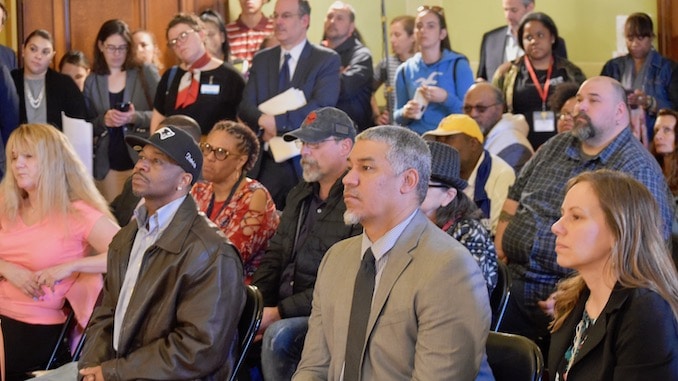
There are “hundreds of careers that people with criminal records have barriers to accessing that requires some kind of license or certificate,” said Fred Ordoñez, executive director of Direct Action for Rights and Equality (DARE) at the Rhode Island State House announcement of the bills. “So we have a campaign to stop that.”
“If the purpose of prison system is really supposed to be rehabilitation, someone who’s been there shouldn’t face a lifetime of discrimination in their efforts to find meaningful employment and become a contributing member of our society. Once they’ve served their time and been released, they shouldn’t be denied a license to work in a field that has nothing to do with their previous offense. There needs to be a more-nuanced, less-punitive approach to licensing,” said Senator Harold Metts (Democrat, District 6, Providence), a deacon in the Congdon Street Baptist Church who regularly provides ministry in prison. “Most people who go to prison are already facing numerous challenges like systemic poverty, housing insecurity, mental health issues and a lack of educational opportunities. The licensing system shouldn’t be another. If they are otherwise qualified, the licensing board should have more discretion and shouldn’t automatically deny them.”
“This is common-sense reform of a system that isn’t serving the public the way it should,” said Representative Scott Slater (Democrat, District 10, Providence). “It’s not protecting anyone to deny someone a license to work in a job because of a criminal record for an offense that has no bearing on that job. This is a system that helps perpetuate poverty in the community, making it so that once a person messes up, they face roadblocks that keep them down for the rest of their lives. People who have turned their lives around and want to work and support themselves and their families should have every available opportunity to do that, without senseless barriers.”
“Occupational licensing reform should lead to meaningful work, not just gainful work” said Megan French-Marcelin, the Fair Hiring Project Coordinator for JustLeadershipUSA, a national group working to decarcerate the United States. “Nationwide there are 75,000 laws and statutes that bar [previously incarcerated] people from everything from housing, to jobs, to health care, to food stamps. 70 percent of those [laws] impact employment.”
“Discrimination in occupational licensing deprives us of so many employment opportunities that we are equally fit to do, and deprives us of a better life, and breaking the cycle of incarceration,” said Sara Reyes, a member of DARE.
“Our experience at Amos House bears witness to the incredible power of meaningful work,” said Eileen Hayes, president and CEO of Amos House. “In my many years at Amos House, I’ve been there for 18 years, over 75 men and women have worked in our organization with felony charges. Currently we have 26 men and women on our staff… To my knowledge only three have gone back to prison, and only one with new charge…”
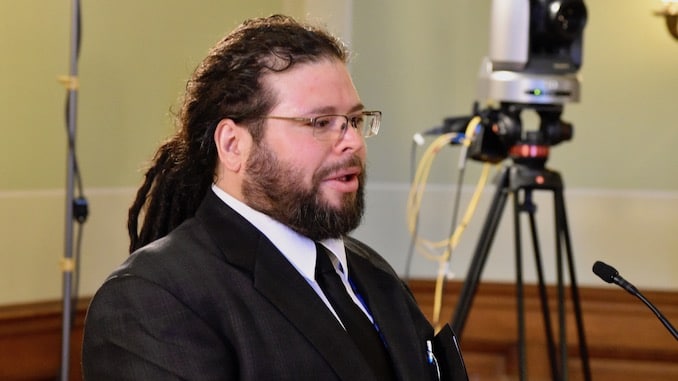
Fred Ordoñez 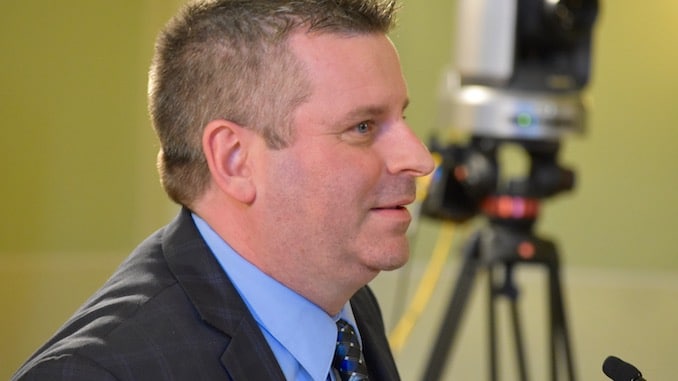
Scott Slater 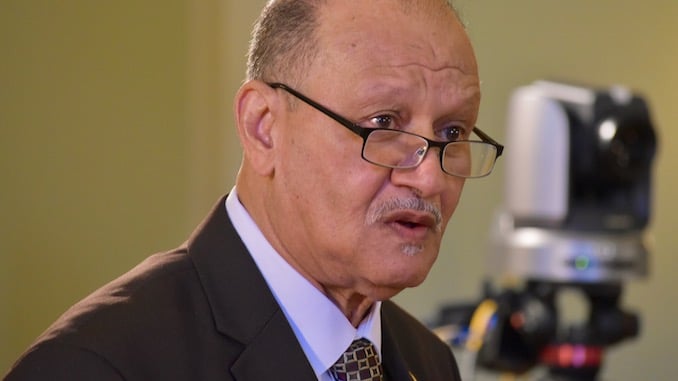
Harold Metts 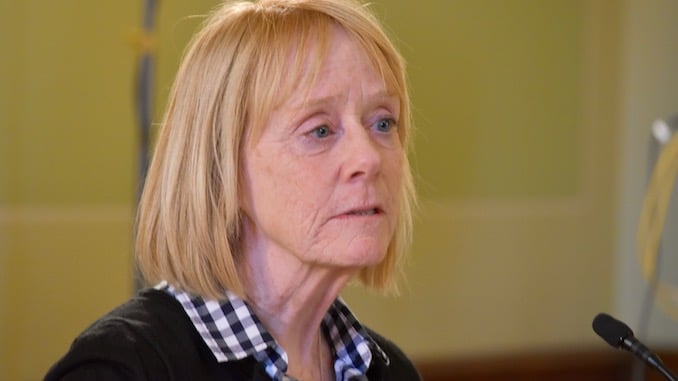
Eileen Hayes 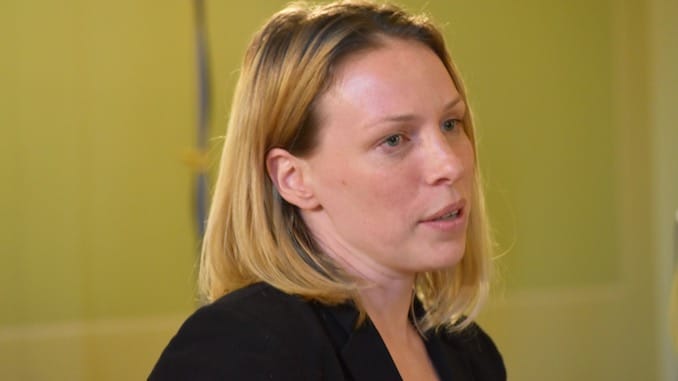
Megan French-Marcelin 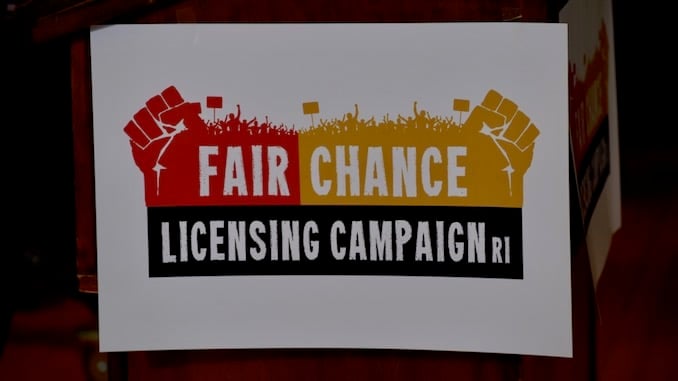
UpriseRI is entirely supported by donations and advertising. Every little bit helps:
Become a Patron!






